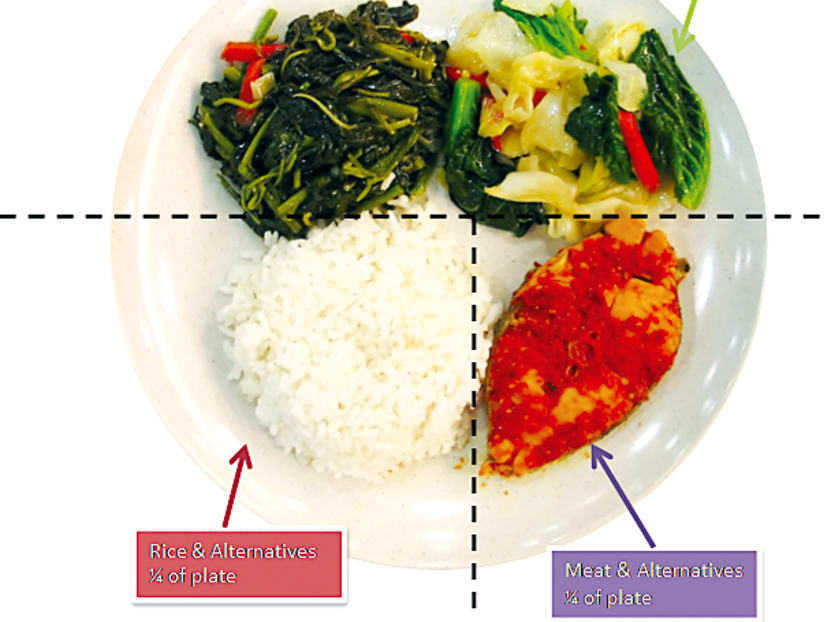Heart-to-heart advice
Singapore — It is National Heart Week/World Heart Day (NHW/WHD) this Saturday. In line with this year’s theme — Live. Work. Play — TODAY spoke with three health experts for their take on how they make heart-healthy choices in their lives, whether at work or play.




Singapore — It is National Heart Week/World Heart Day (NHW/WHD) this Saturday. In line with this year’s theme — Live. Work. Play — TODAY spoke with three health experts for their take on how they make heart-healthy choices in their lives, whether at work or play.
Dr Raymond Wong, 42, Senior consultant at National University Heart Centre, Singapore (NUHCS)
It may be clear that playing doctor is not the right thing to do but a lot of heart patients tend to do that, said cardiologist Dr Raymond Wong.
About one third of patients fail to follow their doctor’s instructions to protect their heart health, he said.
“Some patients have a preconceived idea of what is good for them. For instance, they might take only three out of five pills prescribed.
“Some feel so well after treatment that they think they have recovered, so they stop taking their medications,” said Dr Wong.
What many patients do not realise is that feeling well does not equate to being cured, he added.
Another dangerous misconception is that heart disease is less frightening than cancer.
“On the whole, more people in Singapore die from cancer than heart disease. However, if you compare it to more common cancers like breast cancer, the survival rate is higher than that of heart failure,” he said.
Get screened
Having witnessed how devastating heart disease can be, Dr Wong said cardiologists are generally “fanatic” about their health check-ups.
“Most of us (cardiologists) go for health screenings earlier than the recommended age to look out for risk factors like high blood pressure and high cholesterol that might put us at risk of heart disease,” he said.
In general, the recommended age to start assessing for heart health is around 45 years for men, and 55 years for women, said Dr Wong.
People with a strong family history of heart disease should start earlier, at around 35 years of age.
Manage your stress levels
While more research still needs to be done on how stress affects heart health physiologically, most people are aware of how stress can affect the way you make lifestyle choices, said Dr Wong.
“For example, a person facing work stress might neglect his medications, or make bad choices like smoke or eat unhealthily,” he explained.
Find ways to manage your stress levels by scheduling periods of relaxation and exercise. Getting enough sleep is also important.
Clean up
Have a salad to replace your hawker meals at least once a week. Once you get used to it, gradually increase the frequency of your salad meals over the weeks.
This helps to lower the total number of calories you take in a week, especially if you eat out all the time, says Dr Lee.
Ms Lynette Goh, 36, Senior Dietitian at National Healthcare Group Polyclinics (NHGP)
As a dietitian, Ms Lynette Goh makes sure she walks the talk by eating well. She kick-starts her day with a wholesome, heart-healthy breakfast consisting of oats, oat bran with chia seeds and calcium-fortified soy milk.
There is always vegetables and fruit on her plate at every meal, accompanied by lean protein, fish or tofu. When possible, she opts for whole-grain carbohydrates, leaving her sweet treats for the weekend.
“In general, Singaporeans are eating out more and exceeding their energy requirements. They are consuming food higher in fat, salt and refined sugars, all of which are not heart-healthy,” said Ms Goh.
“We are also having too little heart-healthy food such as fruit, vegetables, fibre and whole grains.”
Dr Lee Yian Ping, 39, Specialist in Cardiology and Consultant, Raffles Heart Centre
Eggs have always been perceived to be bad for the heart because of their high cholesterol content.
But cardiologist Dr Lee Yian Ping thinks that the perceived dangers are “overhyped”. After all, there are so many other factors that can harm our heart, he said.
“People think that our heart health is solely determined by our diet. The truth is that there are many other factors such as our genes, a sedentary lifestyle, excessive stress, smoking, and risk factors like high blood pressure and diabetes,” he said.
Eat smart
Eating more healthily does not always have to be all or nothing, said Dr Lee.
“Instead of opting for char kway teow at the hawker centre, why not consider less unhealthy dishes that are less oily and have lower cholesterol, like noodle soup?” he said.
Opt for chicken and fish, instead of red meat, which is bad for your cholesterol levels.
Strategies like having some fruit before a meal, having regular meals and minimising distractions such as watching TV during mealtimes can help prevent overeating which will lead to weight gain.
Obesity is one of the risk factors for heart disease.
Clean up
Have a salad to replace your hawker meals at least once a week. Once you get used to it, gradually increase the frequency of your salad meals over the weeks.
This helps to lower the total number of calories you take in a week, especially if you eat out all the time, says Dr Lee.





